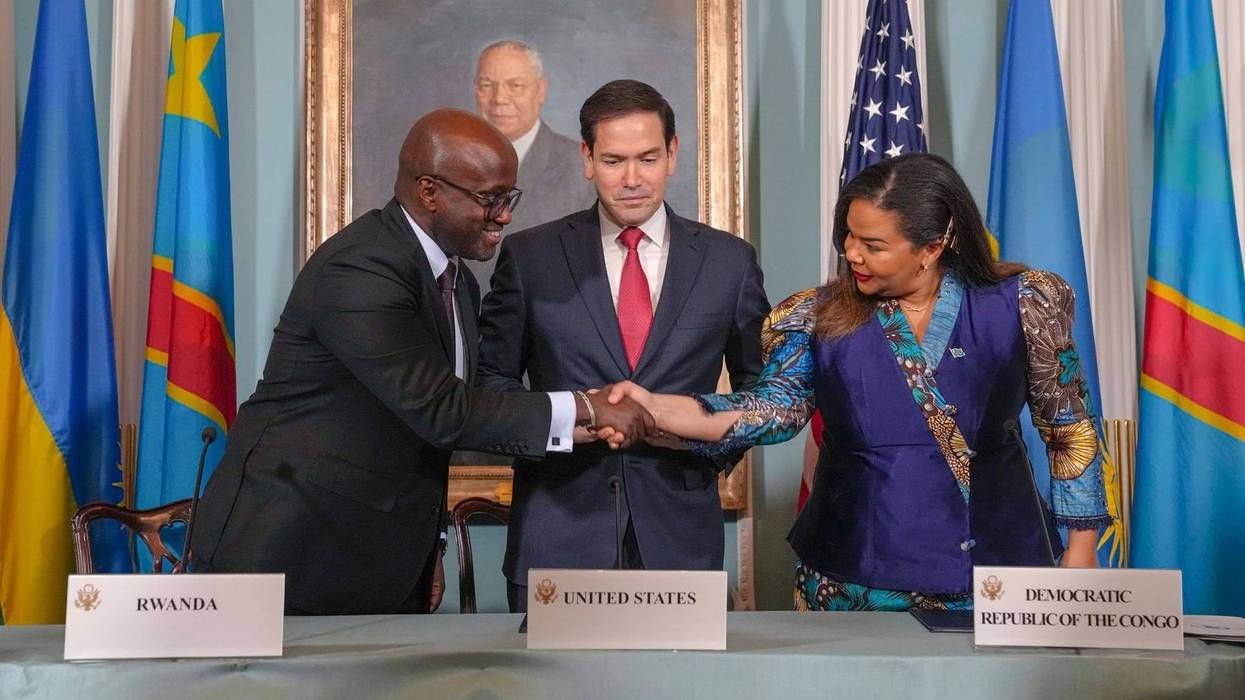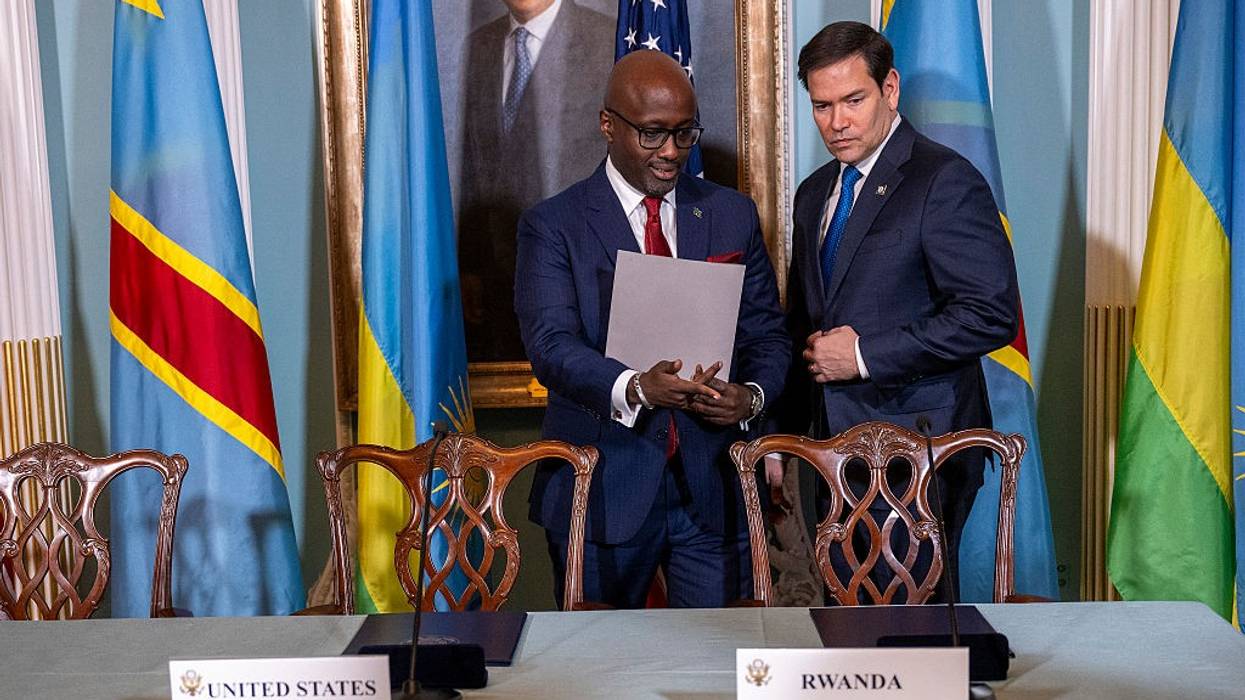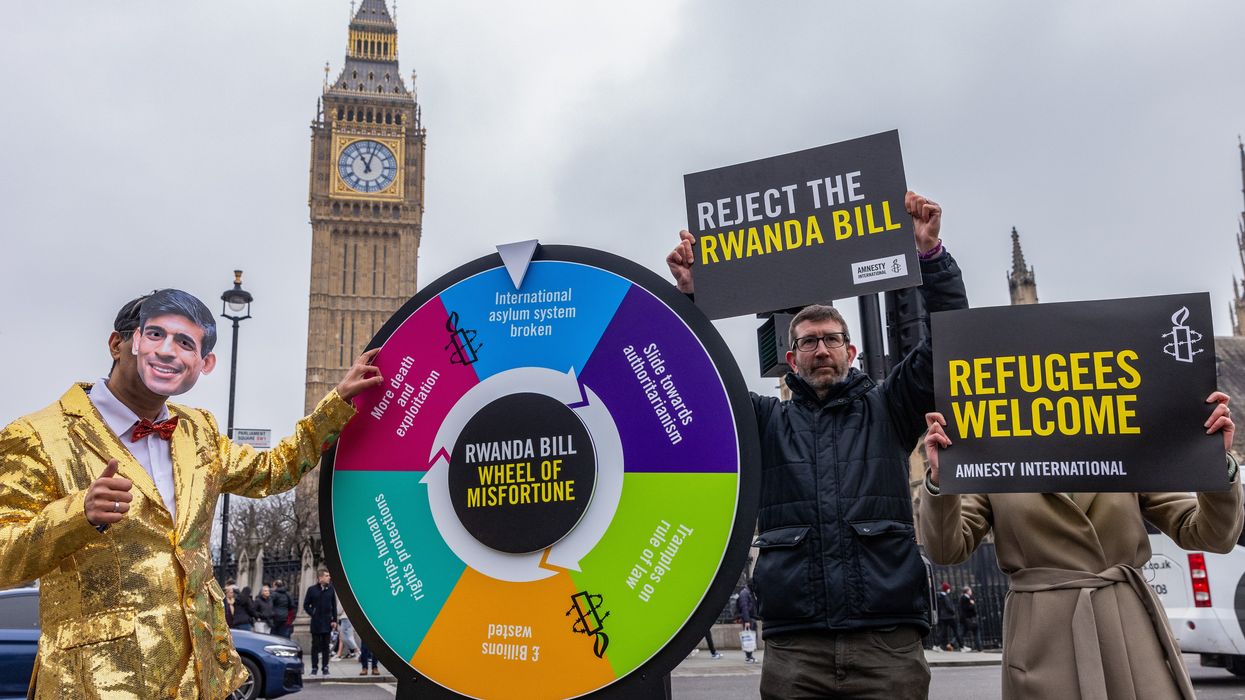However, while world leaders and celebratory headlines applaud the deal, violence continues to rage in the eastern Congo. The deal will not end this suffering; instead, it prioritizes Western private interests over peace, justice, and dignity for the Congolese people, serving as a blueprint for resource extraction and continued violence in the country rather than a true diplomatic success.
The deal, while ostensibly aimed at ending hostilities, places a heavy emphasis on mineral exploitation, leading Congolese civil society to question its true purpose. Nobel Peace Prize laureate Dr. Denis Mukwege has denounced it for “legitimizing the plundering of Congolese natural resources,” a concern supported by the agreement’s inclusion of a clause committing signatories to “launch and/or expand cooperation on… formalized end-to-end mineral value chains… with the U.S. government and U.S. investors.” Upon the release of the Declaration of Principles that laid the deal’s foundations, the International Crisis Group noted that the deal reads “partly like a framework for ending a conflict and partly like a commercial memorandum.”
The False Promise of Peace
It is highly unlikely that the deal will bring a just and lasting peace to Congo. Though a potential cease-fire was announced between the Congo government and M23, the conflict’s largest rebel group, experts say that M23 has already broken the agreement while serious implementation challenges remain. M23 has left withdrawal—and, thus, a true and lasting end to the conflict—out of the question, telling reporters they “will not retreat, not even by one meter.” Meanwhile, over 100 other armed groups continue to fight in the east. On July 23, the U.N. condemned three recent deadly attacks by groups not party to the agreement.
More troublingly, the deal grants Rwanda a green light to continue looting Congolese resources, furthering a central driver of the conflict. By backing M23, Rwanda has taken control of Congolese mines, and committed widespread human rights abuses. Up to 90% of its coltan exports are believed to be illicitly smuggled from eastern Congo, funding armed groups. The accord, which invites Rwanda into a “regional economic integration framework,” legitimizes this theft and proxy warfare.
Rwandan President Paul Kagame doesn’t seem ready to scale back this influence. Just days after the agreement was signed, he cast doubt on the peace process, telling reporters, “If the side that we are working with plays tricks... then we deal with the problem like we have been dealing with it.”
Who Does the Deal Really Benefit?
Today, the Congolese people endure violence not only from armed conflict but also from systemic exploitation, through forced labor, environmental destruction, and land seizures. The scramble for Congo’s mineral wealth has forced tens of thousands of children into dangerous mines, polluted and devastated ecosystems, and displaced entire communities from their homes.
A recent policy brief by the Oakland Institute lays bare how, through handing over Congolese mineral wealth to a web of U.S.-aligned corporate actors and billionaire investors, Trump’s peace deal will deepen the ravages of the country’s mining industry, leaving the Congolese people to pay the price.
The list of the deal’s likely beneficiaries is a veritable who’s-who of Trump-linked billionaires: Bill Gates, Jeff Bezos, Michael Bloomberg, Sam Altman, Elon Musk, Marc Andreessen, and Ben Horowitz, among others. Also on it are mining giants like Ivanhoe Mines, Rio Tinto, and Glencore.
The accord threatens to entrench this cyclical poverty and violence in service of enriching behemoth mining firms and Trump’s billionaire friends.
The track records of these companies undermine any claim that Trump’s deal is about peace for the Congolese people. Ivanhoe Mines’s cochair Robert Friedland once ran Galactic Resources, responsible for one of the worst mining-related environmental disasters in U.S. history. He has already been exposed for harmfully evicting Congolese families to expand his new operations in the Congo. Rio Tinto, notorious for sparking a civil war in Papua New Guinea and for destroying a 46,000-year-old sacred Aboriginal site in Australia, is now eyeing Congo’s Manono Lithium Deposit. Glencore has been fined over $1 billion for abuses in its African mines and maintains illicit financial ties to sanctioned Israeli billionaire Dan Gertler. Both Ivanhoe and Rio Tinto are reportedly set to join a forthcoming minerals agreement tied directly to the deal’s economy-driven clauses.
Lacking the infrastructure to process its own resources, Congo remains trapped in a cycle where foreign actors siphon off its $24 trillion in mineral wealth while its citizens remain among the poorest in the world. Compounding that systemic inequality, both corporate and artisanal mines enact severe human rights abuses and environmental devastation on the Congolese people, injustices that the agreement appears likely to bolster as it opens the door to firms perpetrating them against communities around the globe. In doing so, the accord threatens to entrench this cyclical poverty and violence in service of enriching behemoth mining firms and Trump’s billionaire friends.
Despite what he may think, or wish, Donald Trump deserves no applause for this “peace agreement” because the agreement itself is misnamed. Its focus has never been peace, but rather profit, and his attempt to launder it into something more benevolent is transparently disingenuous.
Without a radical shift, Trump’s deal will likely achieve exactly what it was intended for, funneling billions to already wealthy oligarchs and multinational corporations while sidelining the communities forced to live with its consequences.




